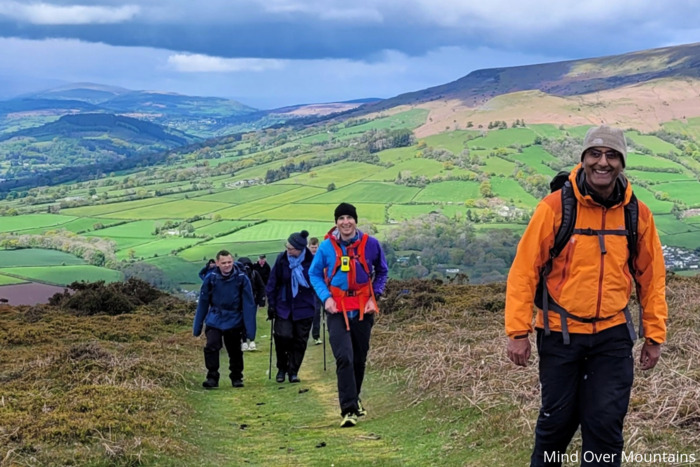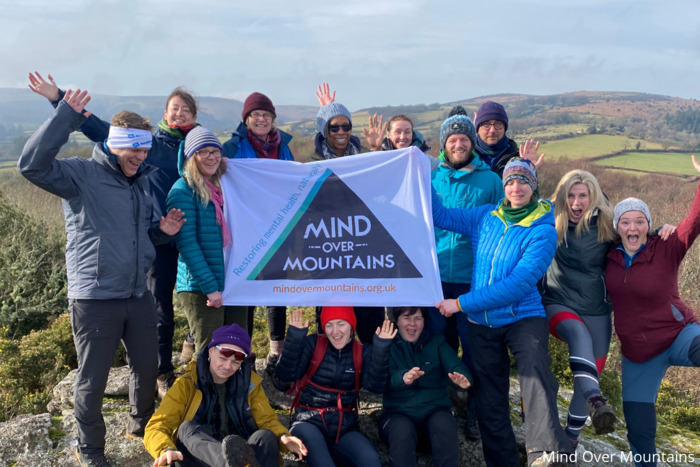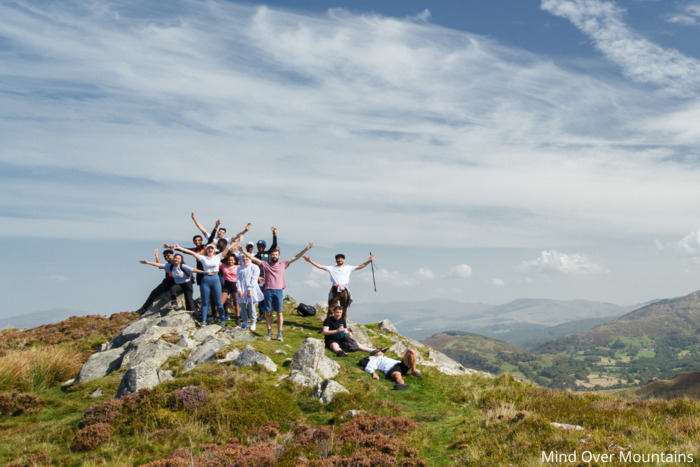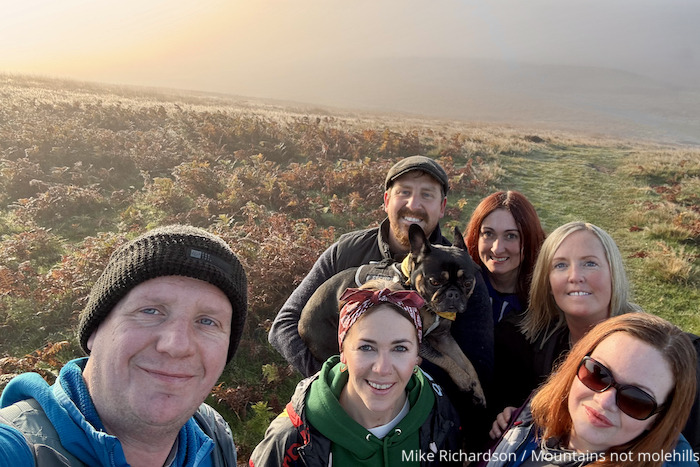What is mental fitness and why is it so important?

We talk a lot about keeping our bodies fit – how far we can run, how strong we’re getting, or how high we can climb. Physical fitness is something we can measure: times, distances, personal bests. We can see progress. But what about our mental fitness? How do we train and strengthen the mind in the same way we work on the body?
What is mental fitness?

At Mind Over Mountains, we think of mental fitness as the way you care for your overall wellbeing – your ability to cope with the ups and downs of everyday life. Just as your physical fitness shows in how well you handle physical challenges, your mental fitness shows in how you respond to emotional ones.
Like any muscle, the mind benefits from regular training. The old saying “use it or lose it” applies just as much here as it does to your legs or lungs. Mental fitness isn’t a one-time achievement – it’s something you build, practise, and maintain over time.
Mental health vs. mental fitness

Words matter. The way we talk about mental health shapes how we think about it.
When we hear mental health, many of us jump straight to ideas of illness or crisis – something that’s broken and needs fixing. But that’s only part of the picture. We all have mental health, just as we all have physical health, and both naturally fluctuate.
Mental fitness, on the other hand, recognises that our minds – like our bodies – can be trained and strengthened. It accepts that we’ll all face difficult times, but reminds us that there are tools and habits that can help us respond better, recover faster, and feel more balanced.
The goal isn’t to “fix” ourselves or to erase the tough days. Challenges are part of life. Rather, the goal is to build resilience, strengthen our coping mechanisms, and create space for a steadier, healthier mindset.
When we focus on our mental fitness, we’re less likely to let temporary feelings of sadness or stress spiral into something deeper like anxiety or depression.
How to build your mental fitness

Just as skipping the gym affects your strength, skipping the practices that support your mind can leave you feeling off-balance. The good news? Building mental fitness doesn’t need to be complicated. Small, consistent actions make a real difference. Here’s how you can build your mental fitness, step by step.
1. Check in with yourself
Start by asking yourself how you’re feeling. How do you cope when things get stressful? Give yourself a score out of ten – not to judge, but to notice. Then think about what might help you move that score a little higher.
2. Move regularly
Physical movement is one of the most powerful tools for your mind. You don’t have to summit a mountain – even a short walk outdoors can do wonders for your mood. Fresh air, daylight, and a change of scenery all help release endorphins and bring a sense of clarity. Choose activities you enjoy, and if possible, share them with someone else.
3. Manage stress mindfully
Stress is part of life, and not all of it is bad. But when it starts to build up, it’s important to know how to bring yourself back down. Exercise can help, but so can something as simple as breath work.
Slowing your breathing sends a signal to your body that it’s safe to relax. It’s a small action that can have an immediate effect, and you can do it anywhere – in traffic, in a queue, or out on a trail.
4. Reframe your mindset
Your thoughts shape your reality. Try noticing when unhelpful thoughts creep in – things like I’ll never manage this or what if I fail? Pause, question them, and see if you can reframe them. Could you look at the situation differently? Could you shift your energy toward what you can control instead? Over time, these small shifts build lasting resilience.
5. Prioritise self-care
Self-care doesn’t always mean bubble baths or spa days – it’s about knowing what replenishes you. For some, that’s a long run or a wild swim. For others, it’s thirty quiet minutes away from the noise. Listen to yourself, and carve out space for whatever fills your cup.

6. Build a steady routine
Routine helps create stability when life feels chaotic. Planning your days and weeks gives you a sense of control and reduces overwhelm. It’s not about perfection – it’s about giving yourself a rhythm that supports your wellbeing and leaves room for rest.
7. Form habits that last
Tracking progress in mental fitness is trickier than measuring kilometres or reps. But habits are how we build momentum. Whether it’s journaling, reading, meditating, or switching off social media for an hour a day – consistency matters more than intensity. Over time, these habits become your mental training programme, quietly building strength beneath the surface.
Final thoughts

Mental fitness isn’t a destination – it’s an ongoing journey. Some days will feel lighter, others heavier. But each small action you take builds a stronger foundation.
And just like climbing a mountain, progress isn’t always about how fast you reach the summit – it’s about learning to steady your breath, trust your footing, and keep moving forward.
Join a Mind Over Mountains Mental Fitness Walk or Retreat
Take some time to step outdoors, connect with nature, and give your mind a reset. Our mental fitness walks and retreats are a chance to walk, talk, and be heard in a supportive environment.
All walks are guided by experienced mountain leaders, with our wellbeing team walking alongside you. This means you can receive professional mental health support from a coach or counsellor while enjoying the fresh air and natural surroundings.


